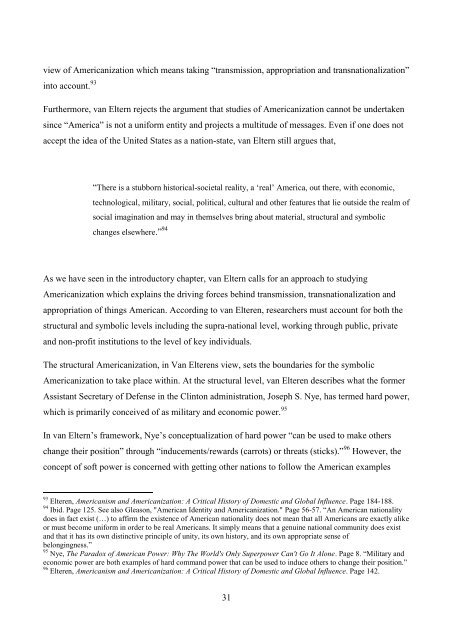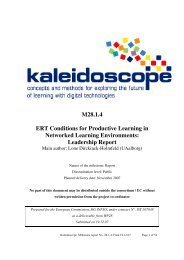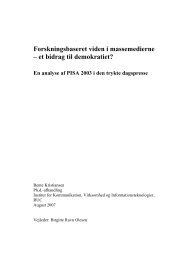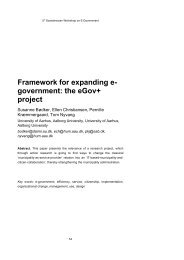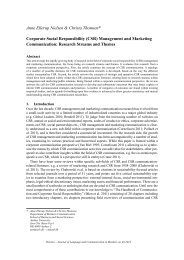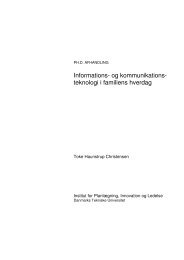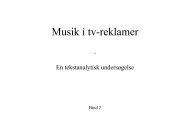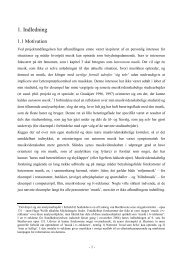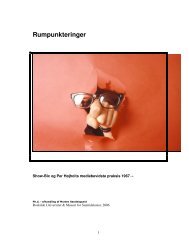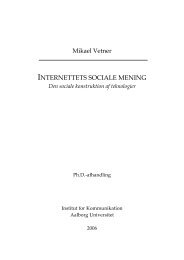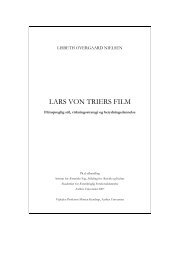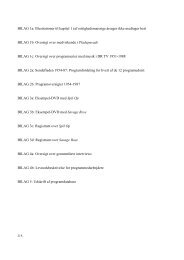The Jeremiad Over Journalism
The Jeremiad Over Journalism
The Jeremiad Over Journalism
You also want an ePaper? Increase the reach of your titles
YUMPU automatically turns print PDFs into web optimized ePapers that Google loves.
view of Americanization which means taking ―transmission, appropriation and transnationalization‖<br />
into account. 93<br />
Furthermore, van Eltern rejects the argument that studies of Americanization cannot be undertaken<br />
since ―America‖ is not a uniform entity and projects a multitude of messages. Even if one does not<br />
accept the idea of the United States as a nation-state, van Eltern still argues that,<br />
―<strong>The</strong>re is a stubborn historical-societal reality, a ‗real‘ America, out there, with economic,<br />
technological, military, social, political, cultural and other features that lie outside the realm of<br />
social imagination and may in themselves bring about material, structural and symbolic<br />
changes elsewhere.‖ 94<br />
As we have seen in the introductory chapter, van Eltern calls for an approach to studying<br />
Americanization which explains the driving forces behind transmission, transnationalization and<br />
appropriation of things American. According to van Elteren, researchers must account for both the<br />
structural and symbolic levels including the supra-national level, working through public, private<br />
and non-profit institutions to the level of key individuals.<br />
<strong>The</strong> structural Americanization, in Van Elterens view, sets the boundaries for the symbolic<br />
Americanization to take place within. At the structural level, van Elteren describes what the former<br />
Assistant Secretary of Defense in the Clinton administration, Joseph S. Nye, has termed hard power,<br />
which is primarily conceived of as military and economic power. 95<br />
In van Eltern‘s framework, Nye‘s conceptualization of hard power ―can be used to make others<br />
change their position‖ through ―inducements/rewards (carrots) or threats (sticks).‖ 96 However, the<br />
concept of soft power is concerned with getting other nations to follow the American examples<br />
93 Elteren, Americanism and Americanization: A Critical History of Domestic and Global Influence. Page 184-188.<br />
94 Ibid. Page 125. See also Gleason, "American Identity and Americanization." Page 56-57. ―An American nationality<br />
does in fact exist (…) to affirm the existence of American nationality does not mean that all Americans are exactly alike<br />
or must become uniform in order to be real Americans. It simply means that a genuine national community does exist<br />
and that it has its own distinctive principle of unity, its own history, and its own appropriate sense of<br />
belongingness.‖<br />
95 Nye, <strong>The</strong> Paradox of American Power: Why <strong>The</strong> World's Only Superpower Can't Go It Alone. Page 8. ―Military and<br />
economic power are both examples of hard command power that can be used to induce others to change their position.‖<br />
96 Elteren, Americanism and Americanization: A Critical History of Domestic and Global Influence. Page 142.<br />
31


